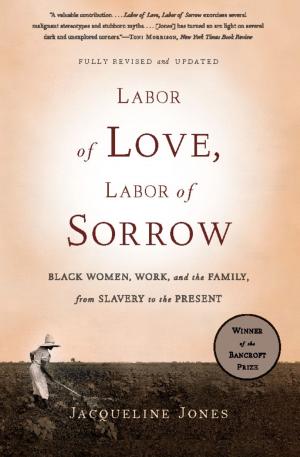Winner Take All
China's Race for Resources and What It Means for the World
Business & Finance, Economics, International Economics| Author: | Dambisa Moyo | ISBN: | 9780465029327 |
| Publisher: | Basic Books | Publication: | June 5, 2012 |
| Imprint: | Basic Books | Language: | English |
| Author: | Dambisa Moyo |
| ISBN: | 9780465029327 |
| Publisher: | Basic Books |
| Publication: | June 5, 2012 |
| Imprint: | Basic Books |
| Language: | English |
Commodities permeate virtually every aspect of modern daily living, but for all their importance-their breadth, their depth, their intricacies, and their central role in daily life-few people who are not economists or traders know how commodity markets work. Almost every day, newspaper headlines and media commentators scream warnings of impending doom--shortages of arable land, clashes over water, and political conflict as global demand for fossil fuels outstrips supply. The picture is bleak, but our grasp of the details and the macro shifts in commodities markets remain blurry.
Winner Take All is about the commodity dynamics that the world will face over the next several decades. In particular, it is about the implications of China's rush for resources across all regions of the world. The scale of China's resource campaign for hard commodities (metals and minerals) and soft commodities (timber and food) is among the largest in history. To be sure, China is not the first country to launch a global crusade to secure resources. From Britain's transcontinental operations dating back to the end of the 16th century, to the rise of modern European and American transnational corporations between the mid 1860's and 1870's, the industrial revolution that powered these economies created a voracious demand for raw materials and created the need to go far beyond their native countries.
So too is China's resource rush today. Although still in its early stages, already the breadth of China's operation is awesome, and seemingly unstoppable. China's global charge for commodities is a story of China's quest to secure its claims on resource assets, and to guarantee the flow of inputs needed to continue to drive economic development. Moyo, an expert in global commodities markets, explains the implications of China's resource grab in a world of diminishing resources.
Commodities permeate virtually every aspect of modern daily living, but for all their importance-their breadth, their depth, their intricacies, and their central role in daily life-few people who are not economists or traders know how commodity markets work. Almost every day, newspaper headlines and media commentators scream warnings of impending doom--shortages of arable land, clashes over water, and political conflict as global demand for fossil fuels outstrips supply. The picture is bleak, but our grasp of the details and the macro shifts in commodities markets remain blurry.
Winner Take All is about the commodity dynamics that the world will face over the next several decades. In particular, it is about the implications of China's rush for resources across all regions of the world. The scale of China's resource campaign for hard commodities (metals and minerals) and soft commodities (timber and food) is among the largest in history. To be sure, China is not the first country to launch a global crusade to secure resources. From Britain's transcontinental operations dating back to the end of the 16th century, to the rise of modern European and American transnational corporations between the mid 1860's and 1870's, the industrial revolution that powered these economies created a voracious demand for raw materials and created the need to go far beyond their native countries.
So too is China's resource rush today. Although still in its early stages, already the breadth of China's operation is awesome, and seemingly unstoppable. China's global charge for commodities is a story of China's quest to secure its claims on resource assets, and to guarantee the flow of inputs needed to continue to drive economic development. Moyo, an expert in global commodities markets, explains the implications of China's resource grab in a world of diminishing resources.















